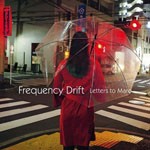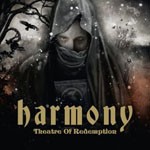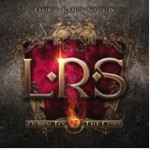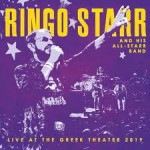Thirty seven years ago, a trip into the world of extreme Metal started for the author of this Interview which you are about to read. One of the bands whose music was responsible for shaping the musical taste of my then thirteen year old self was a trio from the beautiful city of Patra entitled Death Courier. Many years have passed since then but one thing seems to have always remained constant; the band’s undiluted passion towards their craft and their musical integrity. Even though we have never met each other in person, my lengthy discussion with the band’s bassist/Vocalist Bill was more of a chat amongst friends that what you would describe as an average interview between strangers. During the fifty or so minutes that I was so generously granted, I managed to learn a few important details about the band’s glorious but pretty turbulent past, the constant need of expression through the medium of music which led to them reforming back in 2009 with a band new line-up and their plans to make new music available for us to enjoy sometime in 2025!
By Ioannis (John) Stefanis
- Hi Bill. Let me start by saying that it is both a pleasure and an honor to be talking to you right know. It is indeed a pleasure because I get many beautiful teenage memories in my mind every time the name Death Courier is mentioned in a conversation and an honor because I consider this band to be both a pioneer and a champion of the Death Metal genre. Now that I am at an age & position to be able to give something small back to bands whose work shaped my musical upbringing, I do so with great joy. This is a small “thank you” to people such as yourself who believe in what they do and stand for – people who never received the level of recognition they truly deserve. Life is not always fair in that respect!
Bill: You are indeed right about that. Thank you very much for your kind words. I don’t believe that we have spoken before, correct?
- This is indeed the first time we speak to each other. I was born and raised in Athens so I was in touch with many members of prominent Athenian bands back in the mid to late 80s. If we exclude the correspondence we exchanged at the time when I bought the “Deny Your Destiny” demo tape from you…(note: I showed him my tape copy).
Bill: Wow, you have it? Well done (laughs).
- OK, even though it is a rare release, I am pretty sure that quite a few people bought the “Deny Your Destiny” demo back in the day.
Bill: Well, it did sell quite well at the time – this is quite true.
- So, for me it was this demo that first got me in contact with the music of the band and, with the exception of the guys from Flames (note: a legendary 80s Thrash Metal band from Athens) who I know really well as we lived very close to each other, yours is the other Greek band from the 80s which is very close to my heart. So, providing that it is OK with you, I would like to take a journey back to 1989 when the demo was released. I remember how, back in the day, Athens was not a friendly place for your Heavy Metal orientated musicians. You started your musical journey in Patra, which is a much smaller place in size and more provincial in terms of attitude. I imagine that things were one hundred times more difficult for you at the time. So, please share with us your experiences from the time that the band was first put together; how difficult was it to find members to jam with, a place to do your rehearsals, etc? What was the vision you had for Death Courier during those early years?
Bill: My first encounter with Metal music was sometime around 1983-84 and I was quite into it by 1986, the year that I finished high school. By that stage I was very much into bands like Possessed, Venom and Motorhead and also into the first wave of Thrash Metal which exploded around that time. I loved the bands from the Bay Area scene such as Exodus and Metallica. When I was attending the last year in high school I happened to come upon a guitar player whose name was Theo and who became Death Courier’s first guitar player. We immediately started jamming together and our goal was to play something which would resemble early Bathory, Venom and Metallica. This was how we started our quest to putting together a band but it was indeed very hard as it was too difficult to find like-minded musicians, equipment, places to rehearse and magazines to present your music by.
There was absolutely nothing! It was under such circumstances that we met Jim, our first drummer, one day in Olga’s Square (note: located in the very centre of Patra). He was also massively into Metal and extreme sounding bands like Razor and Possessed and he decided to make himself learn to play drums around the same time I started learning the bass. It was in November 1987 that we officially got together as a band and started playing music whose style had much in common with early Sodom, Destruction, Razor & Bathory. These are the very influences that you can find in the “Deny Your Destiny” demo – a demo which we put together between 1988-89.
- So, at that moment in time one would find the band being influenced by many different styles and genres. It is important for people to realize that when Death Courier first came together, the classic Death Metal scene as we know and love it was not yet established. People who listen to Death Courier’s latest material will clearly recognize all those influences from the US Death Metal scene which characterize your work. Those people, however, who first came in contact with your music via either the “Deny Your Destiny” demo or the “Necrorgasm” (EP) (note: it was released in 1990), will listen to a band with whose musical influences are more varied – one whose Thrash elements were as pronounced as were the ones from Death Metal.
Bill: You are correct. As Death Metal was not yet so much into the picture, there were more Thrash influences in our music around that time.
- Even bands such as Death & Possessed sounded quite Thrashy in their first couple of albums, which was, of course, to be expected.
Bill: Something I forgot to mention is that around that time we as a band were heavily involved in the tape-trading side of things. We exchanged our demo tapes with a great number of people around the world. We spoke with tons of people in South America, the US, across Europe – people who played in bands – something which reflected in our style of playing. The whole thing was very underground indeed. We would listen to all those underground releases and we would go crazy over them.
- So you could say that, in some ways, you were both lucky and unlucky to have come out the time that you did. Lucky because you were among the pioneers of a genre that turned out to be very important for Metal music and whose DNA you managed to add your personal signature to and unlucky because your style of playing was not yet defined and, as a result, the average Metalhead found it difficult to relate to and properly support.
Bill: That is very true.
- I would like to discuss more the types of difficulties you had to face as a band in the early days. Was it easy to find a rehearsal space? How often would you guys practice? I assume that people had to do day jobs to pay bills and spend money in the band at the same time, correct? What was the goal which you had set for the band at the time?
Bill: After I finished high school, Jim and I decided to get jobs and we were both employed as season workers in Coca Cola as otherwise we would not have the money which were needed in order to support what we wanted to do. We had to buy equipment and music instruments as we, at that time, were using borrowed ones. In Patra around that time there were no music studios to be found, so we would rent free spaces and we would then convert them into studios. We were quite lucky because we found a rather large basement space at a very central spot in Patra which could accommodate both rehearsals and gigs. Imagine that this was the very same space where the guys from Rotting Christ played their first show. As I am sure you understand, all hell broke loose! At that moment in time, listening to Rotting Christ was not only underground – it was something really special!
- So the very first Rotting Christ show was in Patra?
Bill: Yes, in September 1989. So, at that moment in time we were totally committed; we worked in order to be able to support the band! We would rehearse every single day! During some months we would have as many as twenty five rehearsals! But we worked really hard and we would record everything so as to have available as material. We really enjoyed doing what we did and we though that our output was pretty unique at the time, especially for Greek standards. We also tried to release as many things as we possibly could. Up to the time in 1993 when Death Courier disbanded, we released our demo, one 7”, one album in the shape of “Demise” (1992), a few collections of raw material…after that, the fact that we had to serve in the army, that our economic situation was not all that great did not help things. We also had our guitarist leaving the band which was not good at all.
- So it was a combination of reasons which were responsible for Death Courier disbanding!
Bill: Effectively yes. We had to leave our studio as we could no longer afford to pay for it, we had no money to support our goal, there were no more large groups of people supporting Metal music…
- You are referring to 1993, a period I remember vividly as many classic Metal bands started losing their footing. Monsters of Thrash such as Kreator released albums like “Renewal” which was a great departure from what they were playing up to that time. We were slowly coming to the conclusion that the days when Thrash Metal was the undisputed king of extreme music were approaching their inglorious end.
Bill: Thrash was mainly affected because it was the most popular genre at the time.
- After all these years listening to Metal I recognize that music works in cycles and that genres and types of music have on average a four to five year popularity lifespan. As soon as one life cycle is completed, another one begins. Whereas Death Metal did follow up the Thrash Metal era, it never became as popular as its predecessor.
Bill: That is true; Death Metal never had an appeal similar to that of Thrash Metal. And especially in Greece around that time Death Metal was not doing all that well in terms of sales and all. Only a handful of Death Metal shows would take place and that affected everyone. I joined the army in 1992 and when I finished with my service in 1993 there was nothing to be found in Patra in terms of a scene. Jim (drums) and I were trying to keep things alive for Death Courier up to 1996 but things were very difficult indeed. At that stage, we were no longer as crazy as we were about the band in the early days.
- During that period when you were considering making the band active again, what was you vision for Death Courier? How different was that vision from the one you had back in the late 80s? I am asking this as I assume that you were getting informed of all the developments which were taking place and I am sure that, as a musician, you would get influenced by them to a certain degree.
Bill: I do not believe that the band would have ended up being much different. We already had enough material available from prior to disbanding. In 2013, when we released our second full length album entitled “Perimortem”, we included material which was supposed to first come out around 1993-94. The material was there; had we released it when we were supposed to it would only have sounded more raw than it did in “Perimortem”, as we have refined it a lot over the years. The new guys we have now in the band are very accomplished in the way they play. Both George, our guitarist since 2009, and Ilias, our drummer, are very skillful musicians. They are like well-oiled machines and that is great as it allows Death Courier to continue existing as a band. They are much younger than I so they have plenty of energy to give into the band and they help me a lot with things, as my general abilities are somewhat more limited (laughs). My ‘batteries’ are the problem, you know what I mean?
- We are all looking for that one thing which keeps us forever young, right? Life is all about experiences, isn’t that so.
Bill: You are absolutely right.
- One question regarding Death Courier’s first full length album “Demise”, if I may. Unfortunately, I was not able to get my hands on the album when it was first released, so the LP I did eventually managed to get my hands on is from the label Nuclear War Now which came out many years later. Based on the fact that the “Necrorgasm” (EP) came out in 1990 and that very release came out so close to the “Deny Your Destiny” Demo that they are somewhat strongly related, I would expect for your first LP to consist solely of new material. I am not suggesting that the fact that you did not follow that approach is a band thing, seeing as songs like “Lunatic Messiah” and “The Haunter Of The Dark” are amongst my personal favorite Death Courier songs ever recorded. Did you feel so strongly about the quality of these songs that you decided to include them in your first full length as well? Was it a question of making these compositions available to people who were not lucky enough to get their hands on either the demo or the EP?
Bill: What you said last, that by adding these songs onto our full length we would be making them available to more fans did influence our decision but our main aim was for “Demise” to bring together all the songs which we had created as a band up to that point. During that period we were under heavy time pressure as our drummer was asked to perform his military duty and, as a result of that, we completed the album in something like a week! We were under immense pressure so the end result was somewhat rushed, something that you can tell by the quality of the production and the sound in the mix. This was more like recording a rehearsal rather than an album. We did that with analogue equipment like all the classic recordings were at the time.
- The album was recorded at a local studio in Patra which is also very interesting to me. Did you not consider finding a studio in Athens for the recording or was that still too early to have good quality studios in Athens as well?
Bill: There were good quality studios in Athens at the time, places with better trained personnel and quality equipment to use. It was the fact that time was against us that stopped us for considering such a thing. The studio where “Demise” was recorded was right next door to where we lived so it was convenient. The funny thing was that we would finish recording and straight away people carry their clarinets and their bouzouki guitars would go in to do their rehearsals which was a very funny thing to watch indeed. We couldn’t be any different fom them even if we tried (laughs). I believe that the production of the album was pretty decent considering the circumstances involved. It did offer something to the extreme metal scene of our country.
- Indeed; no question about that! It is a pretty remarkable piece of work – one most certainly to be proud of. It is a sad thing to realize how unlucky you had been in some respects. If you were a bit closer to the capital or if you were put together a few years later than you did you would have had more help in terms of technology, proper studios and even venues to rely on.
Bill: Imagine that around that time there were not many placed available to play live. I mean, you had a few self-managed places, a university hall and nothing more. This meant that for a gig to take place there was much effort involved. And the costs of organizing such an event were much higher than the ones which we could really afford.
- Even in Athens at the time, the only venue to host any decent gigs was Rodon Club. Even though I was still relatively young, I was lucky enough to see bands such as Sodom, Destruction, Running Wild, D.R.I. & Sepultura there.
Bill: Me too.
- I cannot remember any other venue around that time hosting live Metal shows.
Bill: No, it was indeed only Rodon Club. I cannot remember whether the Ann Club was around at that time, was it?
- I really cannot tell. The first time I visited that place was to see Agnostic Front live and that, I believe, was in the year 2000.
Bill: Now that I remember, I believe that we did play in that club sometime in 1993-94 together with Porphyria, Vomit and Danger Cross.
- The first live show I watched in Rodon club was Sodom which was back in 1988 and I believe that the support band at the time was Flames. This was not unusual as the said band opened for all extreme Metal bands which visited our country around that time. They also opened for Sodom, Kreator and other bands that I now cannot remember so one would be right in stating that Flames were the representatives of the Greek metal scene at that moment in time. How is it that Death Courier never managed to get such a slot? Was it a question of not having the right connections or the fact that you were not an Athens-based band?
Bill: That is indeed the case to a certain extent. We were never deeply involved in the things that were happening in Athens – we were more of a low-profile band. We did play festivals and we would normally organize shows with Rotting Christ, Sadistic Noise and bands whose sound was close to our own at the time and these were people we would normally hang out with. With Flames we did have a connection, especially with Ilias (note: bass player 1991-93) who was a really nice guy. We played together with them at the Molon Lave festival (note: a great gathering of Greek Metal bands which took place at the Rodon Club in November 1990). We intended to open for Destruction when thy came to play in Greece for the first time (note: 27th October 1989) but because of the fact that Theo had some personal issues to deal with at the time we had to pull out. I believe that it was Danger Cross who took our slot.
- That would have been the time when they released “The Art In Pain” demo. This means that under different circumstances I would have seen Death Courier performing at Rodon Club – what a shame!
Bill: It was a family emergency that Theo had to deal with, otherwise we would not have missed that show. Luck plays such a major role sometimes, right? I mean, performing live in support of a band such as Destruction could have opened many doors for us, but sadly that did not happen. What can you do, right? It doesn’t matter, as long as we are all healthy and strong.
- I think that life, the universe or whatever you want to call it has a way of correcting such injustices sometimes. I am here now talking to you about Death Courier whereas Danger Cross are no longer active, as far as I am aware.
Bill: I don’t believe that they are active at the moment, you are correct. I will tell you this one thing; in 2014 we played at a festival in Athens and that was the first show we did in Athens in years. One of the guys in the crowd was a member from Danger Cross. After the end of our set he came on stage and we had a short chat which was pretty amazing after all those years. He came to see us play!
- Regardless of how popular Metal music became in Greece at a certain moment in time, the scene is still small enough for people to know one another.
Bill: Indeed and that is something I really like. I visit Athens very often and most of the time I walk around all alone; I would leave the family in the hotel when I am here to see a show and so I always end up finding someone to speak and have a beer with.
- Ok, let’s go back to 2009 when you decide to reform Death Courier. Did you consider asking Theo to get involved with the band?
Bill: It was sometime around 2006 that Theo and I tried to play together again but it was not possible for him. We did try, we had a few rehearsals together and performed two or three songs from “Perimortem” but we only managed to take things to a certain point after which he could not really follow up. Jim, our old drummer, had the same issue pretty much. It was too physically demanding for him to perform with Death Courier. Being away for a long time makes things much more difficult.
- I was thinking how interesting it would have been to have two guitarists in the band – something that never happened with Death Courier as far as I know. George joined the band in 2009, so there was an opportunity under certain circumstances for him to share guitar duties with Theo. Personally speaking, I prefer it when bands have two guitars, especially on stage.
Bill: You are right in saying that Death Courier never had two people sharing guitar duties. I will tell you something that you most probably don’t know; in 1987, right before we recorded our demo, there were two guitarists in the band. The second guitarist was Nikos Kourkoulis who many years later created “Aspa Staxti”. I am not sure whether you are familiar with that scene or not?
- No, not at all!
Bill: It is a Hardcore band which perform at self-managed spaces. We employed his services as a guitarist and he was really helpful for a handful of months, after which time he simply wanted to play other things and so he stopped playing with us. At that moment, we decided to continue with Theo as the sole guitarist.
- In a parallel universe it would be very interesting to have a version of Death Courier with two guitarists.
Bill: Absolutely (laughs).
- And even now, this is something that you are not interested in having for the band, right?
Bill: We have thought of having a second guitarist for our live shows, as the sound would be better, more full and heavy! Having said that, I have never attended a rehearsal with two guitarists. Things are much easier when only three people are involved. Much easier.
- There is much less friction I suppose as there must be less instances where you need to compromise and go with someone else’s idea instead of yours, right?
Bill: Yes, for sure.
- OK, so we reach that stage where the band has been reactivated in 2009 and Death Courier’s second full length album entitled “Perimortem” is released. This is another Death Courier release that I didn’t manage to get my hands on at the time of its release which was weird, as I am usually quite good at keeping track to what is happening in the Metal scene. Even though I did miss its release, when I did manage to finally listen to it I remember feeling very impressed by it. I was living abroad at the time so finding a copy was not at all easy for me I have to admit.
Bill: I am not at all surprised as “Perimortem” was not released by any label but was instead self-funded.
- Only God knows how this tiny little record store in Camden (London) managed to get a copy back then. If I did not recognize the band’s logo I would never have believed that this was the same Death Courier that I grew up listening to. What we have here is a very good quality Death Metal album that deserves the attention of every Metal fan. What do you remember from that period? Did you feel that this album would kickstart a second more creative period in the band’s life – a revival of sorts?
Bill: Yes, sure. In 2009 I attended a show by Vermingod, another Death Metal band which is based in Patra and which featured Stathis on drums and George on guitars. I found them both willing to work with me in a new Death Courier line up as they knew the band and what it stood for. So, we soon found ourselves doing rehearsals as a trio. So in 2013 we recorded “Perimortem” which consisted mainly of old Death Courier material with the addition of a handful of new tracks. I believe that it was a pretty good album and it is responsible for putting Death Courier back on the map.
- A very impressive album indeed and an album which came out at a time that Death Metal was a very well-stablished genre and enjoyed a lot of interest from Metal fans around the globe. It may not have shared similar levels of popularity to the time when albums such as “Eaten Back To Life (Cannibal Corpse) and Legion (Deicide) were released but people were still very interested in and supportive towards the scene.
Bill: And at that time the Greek Metal scene was quite large indeed; there were so many bands around at that time.
- Now, this is a question that I really should be making on the rest of the members in the band but as I am talking to you alone you will need to speak on their behalf. How easy do you think was for Stathis and George to assist in bringing “Perimortem” to life, considering the fact that you are a founding member of Death Courier so the music vision for this band is yours. They, on the other hand, are asked to put their own ‘creative stokes’ on someone else’s brainchild! That cannot be a particularly easy thing for any musician to deal with.
Bill: It is not an easy thing to have to handle, no. I believe that they did like the material which was presented to them and it was indeed older material but also one which we worked and put together. The basic ideas were indeed mine but the way we constructed those ideas gave them much space in terms of personal expression – both in terms of the drum beats performed by Stathis as well as the guitar solos written by George. In a sense all three of us were the creators of the music on offer.
- So, would you describe your self as being a very open-minded and democratic colleague?
Bill: I believe so, yes and that is easily audible on our next studio album “Necrotic Verses” which came out in 2020. This is our latest studio effort which features songs which were written by George so you could say that we shared creative space on that album.
- That is a very positive attitude, especially when the guys you play with are very skilled and accomplished musicians. You need to take full advantage of such good skills.
Bill: This goes without saying.
- So, 2013 sees the release of “Perimortem”, a very good album as we already stated and then we have to wait for a good seven years before a new Death Courier album sees the light of day in the shape of “Necrotic Verses”. Why is there such a long gap between the two releases?
Bill: Our main consideration was to ensure that any new material we released was of the outmost quality, to release something more unique this time round, regardless to what the end result was. You need to understand that we are not people whose life depends on how often a Death Courier album is released. We are not constantly involved with the band as others do. Our circumstances are such that we spend less time today with the band than what we did in the past. So the process of putting together new material and recording it took much longer. If you add to that the COVID-19 pandemic and a two year delay which was imposed on us by our record label due to a busy release schedule you can justify the delay. “Necrotic Verses” could easily have been released back in 2018 but instead we were delayed for two whole years. I hope that this will not be the case with our new album which we plan on having released sometime in 2025.
- Now, that is what I like to hear! This is the real focal point of this interview! I started this interview taking you back in time simply because it is very important for the younger fans of the scene to realize that this is a band with a long and very interesting history.
Bill: Recording your music was a very difficult task in the old days. Nowadays, I can record something and make it available online in less than and hour!
- Now, this begs the question; if you are able to do such a thing for yourself without a major effort on you part, what do you need a record label for? Are they helpful solely & mainly for their promotion and distribution networks?
Bill: Look, we are still a pretty old school band in the way that we do things. We like the idea of printing vinyl and hold it in our hands, I want to do rehearsals like I did in the old days, to jam with my colleagues while enjoying a drink together…this is how we like to do things. It may be a more time consuming approach but it is one which satisfies me more. I like to sell our t-shirts and our records hand in hand with our fans as it is more rewarding and much friendlier this way.
- I remember one of the most amazing things as a young boy was the smell of a newly bought piece of vinyl. That smell together with the sense of ownership that you felt when holding an LP into your hands was second to none. You could say to yourself “this is mine and it’s real” – not some file placed somewhere on the ‘C’ drive of my PC!
Bill: Absolutely! It is a piece of art which is right there in your hands; you touch and have direct visual access to everything that is relevant to it.
- With that in mind, how can people get their hands on “Necrotic Verses”? I have tried to find it via record shops over here in Athens but that has proved fairly difficult. I am pretty sure that there are many other people like me who would be interested in the physical format. What is the best way to obtain it?
Bill: The only way for someone to get their hands on “Necrotic Verses” is via the label (note: Transcending Obscurity Records). The copies which were given to us by the label have sold-out for quite some time now. Imagine that, as a band, we were only handed out sixty copies which we stopped giving away years ago.
- Your label is based in India, correct?
Bill: Indeed and it is called Transcending Obscurity Records.
- How did you choose a label from that specific part of the world instead of one based closer to home?
Bill: I was in talks with Kunal, the label owner, who told me that he really liked “Perimortem” and asked whether we had any new material. I send him a demo with new songs which he liked and this is how an agreement was reached.
- The classic way of doing things. So, in terms of the music you are working on now? How many songs are ready and what format will the new release have? Is it going to be a full length or are you perhaps considering something slightly shorter like an EP? I am asking as quite a few of the bands I have been in contact with recently are either interested in short physical releases or they simply upload their material online.
Bill: I will tell you what our thoughts are at this moment in time. So far we have recorded two new songs and we are in the process of recording four more. If these six new songs are to be released on vinyl by the label they will be in the shape of an EP. If we manage to prepare two more songs we will then opt for a full-length album. That is basically a decision of the company, how they want to make these songs available. I believe that by the end of the year we will have collected all the songs we will have available and that action will inform our decision. Regardless, however, to how long this release will be, it will be made available on vinyl.
- A CD version is always in the cards I presume?
Bill: Yes, absolutely.
- Will the new release also come out via Transcending Obscurity Records or are you approaching any new working partners this time round?
Bill: We have a long standing contract with Transcending Obscurity Records so the new release will be by them and the band line-up will, of course, also be the same with that of “Necrotic Verses”.
- Good stuff. You should never try to fix something that is not broken, right?
Bill: Exactly that!
- Based on some of the articles that I have read online, people who have experienced a live performance by this line up come across as pretty pleased by the quality on offer.
Bill: And we are pretty pleased to receive such positive feedback! The only thing which stalls things a bit are the obligations we have towards our families and our jobs which, I believe, is understandable. Otherwise, we would have more work to present and that work would have been made available on a more frequent basis.
- Believe me when I say that I have had similar discussions with many of my friends who play in bands over the years. I now come to believe that maybe not being a professional musician is not such a terrible thing after all. I mean, once the pressure of having to bring out new music on a frequent basis is out of the picture, what you do end up doing is creating music on you own terms, something that ought to guarantee a better quality product.
Bill: That is indeed correct. We are in a very privileged position in that respect.
- So, back to the new material. You mentioned that you have recorded two new songs. How close are these song stylistically to those featured in “Necrotic Verses”?
Bill: I would say that they are pretty similar in both sound and style. Imagine songs which combine elements from both “Necrotic Verses” and “Demise”. They are not characterized by great speeds, they are more melodic in comparison and they are more Death Metal in their overall effect – more dark in terms of atmosphere. Personally speaking, I like very much performing them so I really hope that people will like listening to them just as equally (laughs).
- First and foremost, it is yourself who needs to be satisfied with the music you make and then worry about making the rest of us happy. You cannot please everyone anyway.
Bill: That is so very true!
- While searching for opinions and points of view in relation to your music on the web, I noticed that one common ‘complaint’ of sorts is the lack of extensive melodic parts & guitar solos in your music – elements which other similarly-sounding bands present in their music. This is the ‘common denominator’ on all the not so positive comments I did come across to. I expect that such views would not affect you all that much, as the vision on how Death Courier should sound is yours and yours alone. Having said that, have you ever considered incorporating more such elements in your music?
Bill: Look, in general, the compositions we create tend to be short in duration. This does not mean that they do not include different elements in them, however, when a song is, say, three minutes long, there is only so much that you can include in it. There are indeed certain things which are missing, however this is out of choice. Our aim is for our compositions to be fast & aggressive and lave you with a desire to listen to them again straight away. You will notice when you listen to it that the new material contains more of the elements which are currently missing from our music. Maybe some of the people who raise such points are right to a certain extent and that is why we are trying to tackle such issues in our upcoming release. We will rectify these issues for sure.
- I hear what you are saying – still, you cannot expect a band such as Cannibal Corpse for instance to sound much more different than their musical DNA commands, right? I am not suggesting here that Cannibal Corpse are your main influence, however, your style owes a lot to the US extreme Death Metal scene and the bands who serve that scene are not the most melodic sounding.
Bill: You know another thing that springs to mind as we are having this discussion is that I play the bass guitar in the band and also the main composer. I am not a lead guitarist who is normally preoccupied with melodies and guitar solos. Funnily enough that is what is happening with Cannibal Corpse; it is Alex Webster, the band’s bassist, who comes up with most of the material. So, a bass player normally composes music with a main rhythmical part in mind and that, I believe, is the reason why we sound the way that we do.
- That is a very good point. I will, however, mention that in the case of Deicide, a large part of the music is composed by Steve Asheim, the band’s drummer and still the end result is in many cases surprisingly melodic. I had the pleasure of doing an interview with him at some point and was much surprised by this revelation. Even during the band’s classic era, with the Hoffman brothers on guitar duties, a lot of the music came from him.
Bill: Wow, that is indeed very surprising to hear.
- We are eagerly anticipating the new release then, whatever form it may have. I assume that until 2025 when your next release will see the light of day, people will be able to get informed regarding all things Death Courier from your official Facebook page, right?
Bill: We plan on making available takes from both the studio and our rehearsals so that people can have a better idea of what to expect from us in 2025. It is nice to add a few snippets on Facebook (www.facebook.com/profile.php?id=100035761003072), as people do like to know what it is that you are up to.
- This is something I also like to do, even though I am of a certain age. So, if someone like myself invests in social media for his information then I am sure that younger Metalheads will not just expect it but demand it. I believe that you have also planned a handful of live shows soon, right?
Bill: Yes indeed. We will be performing one show in Athens this coming October at The Temple club (www.facebook.com/templeliveclub) together with another Death Metal band called Resurgency who have recently became active again as well as Coffin Dweller and Sickening Horror, all being Athenian bands. I am sure that this will be a very enjoyable show to watch. What we are also trying to do is to bring Varathron in Patra for a live show so as to play together.
- That would be great as the comments have been overwhelmingly positive regarding their performance as support for Rotting Christ at the Lycabettus Hill Theatre earlier this year.
Bill: Their latest studio album “The Crimson Temple” was absolutely amazing! I spoke with Stefanos (note: Necroabyssious/vocals) and we agreed to play a show in Patra together. We only have to find the right time to do it so as not to conflict with the schedule made for them by their label.
- Great news. As far as your show at The Temple is concerned, health permitting, I will most definitely attend. I need to finally meet with you and shake your hand in person, to thank you for all those years of good quality music. Now, if you do manage to arrange something as impressive in Patra with Varathron I will have no qualms in making a day trip to your beautiful city.
Bill: OK, so we will see you at The Temple then? That is great news.
- I will bring you a couple of things to sign for me if that’s OK and, if I am lucky and have had my hands on “Necrotic Verses” by that stage I will bring it as well.
Bill: Don’t worry about that; I will get “Necrotic Verses” for you. Lave this with me. This is something I will need to give you myself OK?
- It’s a deal, as long as it has you signature in it!
Bill: Sure (laughs). We will arrange everything on the spot. I will find the album and will bring it for you exclusively, OK?
- Thank you, I really appreciate your intention. We have been chatting for almost fifty minutes so I should let you off. I want to once again thank you for taking the time to do this interview with Get Ready To Rock as your music is part of the soundtrack of my teenage years and this is priceless to me. At that early moment in our lives, certain sounds and images helped create a word for us that was far more beautiful than the one we were living in. This is the reason why we fell in love with this type of music I believe. I also wish you from the bottom of my heart to have the project Death Courier alive and strong for as long as you deem it to be necessary in order to satisfy all your personal artistic needs. I will always be there to support you and your band, that is a promise.
Bill: Thank you very much for the time you invested, for the questions you asked and for your overall support. Thank you Ioannis. See you in person in October.
Featured Artist: JOSH TAERK
Since early 2020 Josh has been entertaining us with exclusive monthly live sessions,
Check out videos here: https://www.facebook.com/getreadytorockradio
Upcoming sessions:
February 15
March 8
April 12
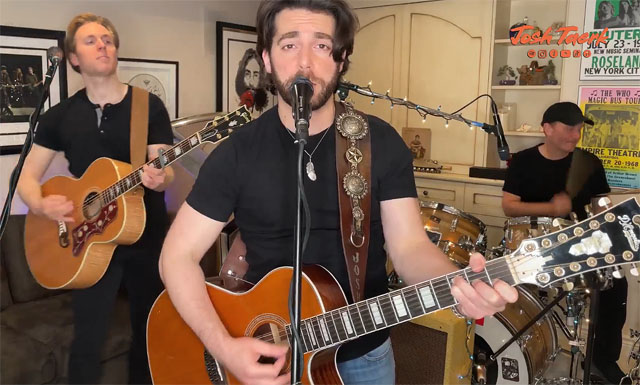
David Randall presents a weekly show on Get Ready to ROCK! Radio, Sundays at 22:00 GMT, repeated on Mondays and Fridays), when he invites listeners to ‘Assume The Position’. The show signposts forthcoming gigs and tours and latest additions at getreadytorock.com. This “Best of 2025 reviewer choices” show was first broadcast on 21 December 2025.
UK Blues Broadcaster of the Year (2020 and 2021 Finalist) Pete Feenstra presents his weekly Rock & Blues Show on Tuesday at 19:00 GMT as part of a five hour blues rock marathon “Tuesday is Bluesday at GRTR!”. The show is repeated on Wednesdays at 22:00, Fridays at 20:00). Pete’s Best of 2025 was first broadcast on 23 December 2025
How to Listen Live?
Click the programming image at the top of the page (top right of page if using desktop)
Get Ready to ROCK! Radio is also in iTunes under Internet Radio/Classic Rock
Listen in via the Tunein app and search for “Get Ready to ROCK!” and save as favourite.
More information and links at our radio website where you can listen live or listen again to shows via the presenter pages: getreadytorockradio.com
Power Plays w/c 26 January 2026
JOANNE SHAW TAYLOR Hell Or High Water (Journeyman Records)
TY FREEMAN One Way Love (indie)
GREY DAZE Monster You Adore (indie)
HOKKA Death By Cupids Arrow (Nuclear Blast Records)
PURPLE DOTS Stared At The Sun (Kycker)
SAINT AGNES Song For Mia (Spinefarm)
STREETLIGHT Shake That Feeling (Frontiers)
Featured Albums w/c 26 January 2026
09:00-12:00 The Best of 2003 – 2025 (Melodic Rock)
12:00-13:00 The Best of 2003 – 2025 (Melodic Hard Rock)
14:00-16:00 The Best of 2003 – 2025 (Singer Songwriter)
Our occasional Newsletter signposts latest additions to the website(s). We also include a selection of recent top albums, based on GRTR! reviewer ratings. The newsletter is sent out a few times a year.
If you’d like to register to receive this occasional mailing please complete the form:
If using a smartphone/tablet please tap here or re-orientate your device
(Note that this registration is separate from site registration which allows you to leave comments and receive daily emails about new content. If you wish to register for this – in addition or separately – please click or tap here – for more information – the form is at the foot of each page. Please read our privacy policy when opting-in to receive emails.
Recent (last 30 days)

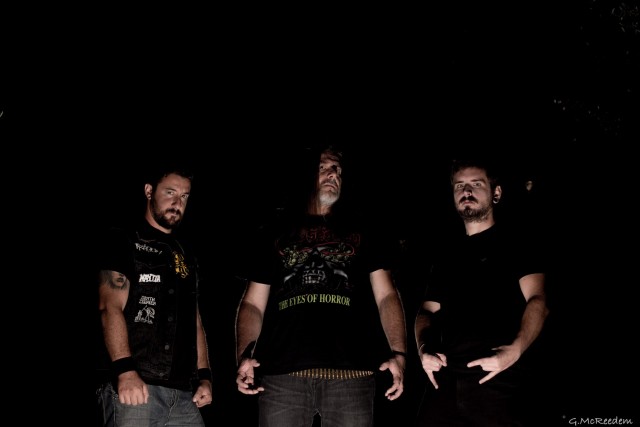


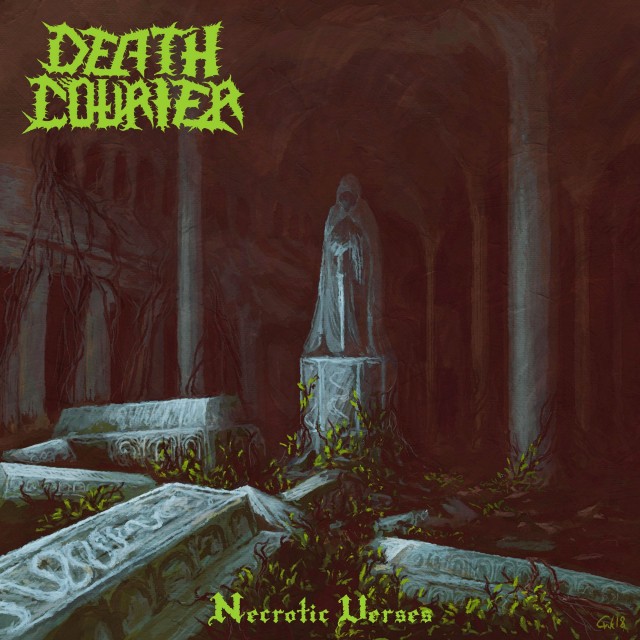

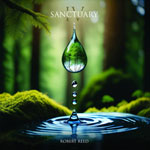
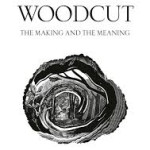
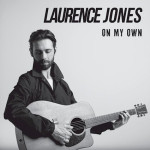
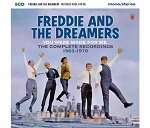
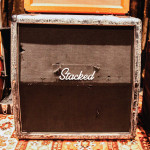
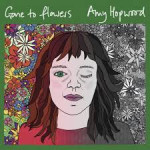
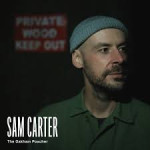
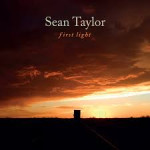
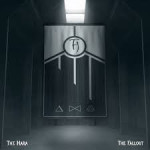
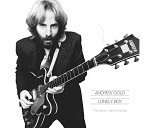
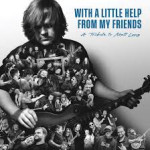

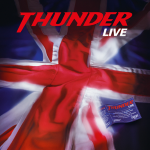
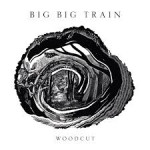
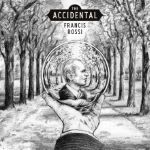
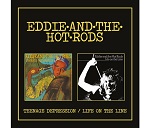
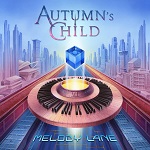
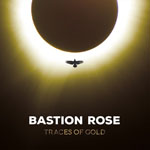
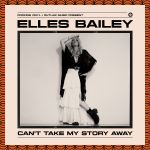

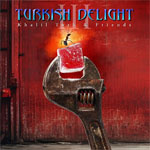

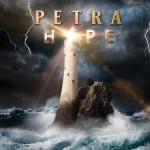

 PDF - you can delete unwanted sections
PDF - you can delete unwanted sections


















